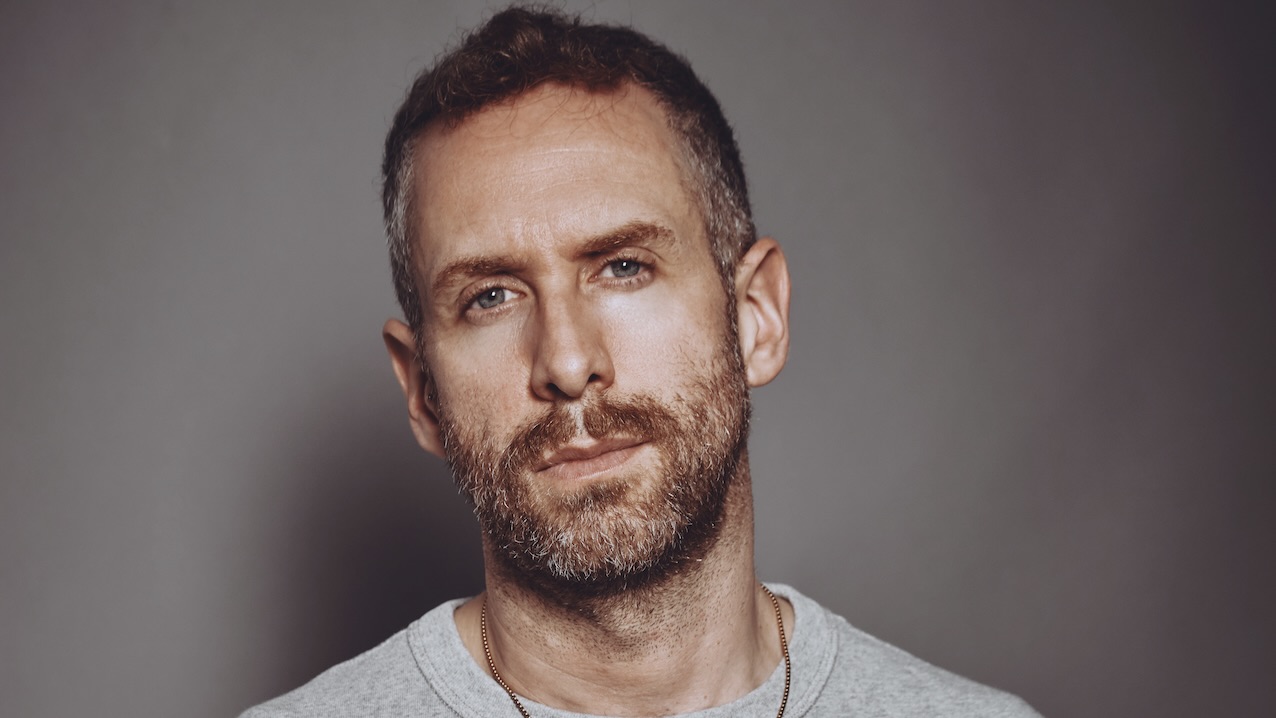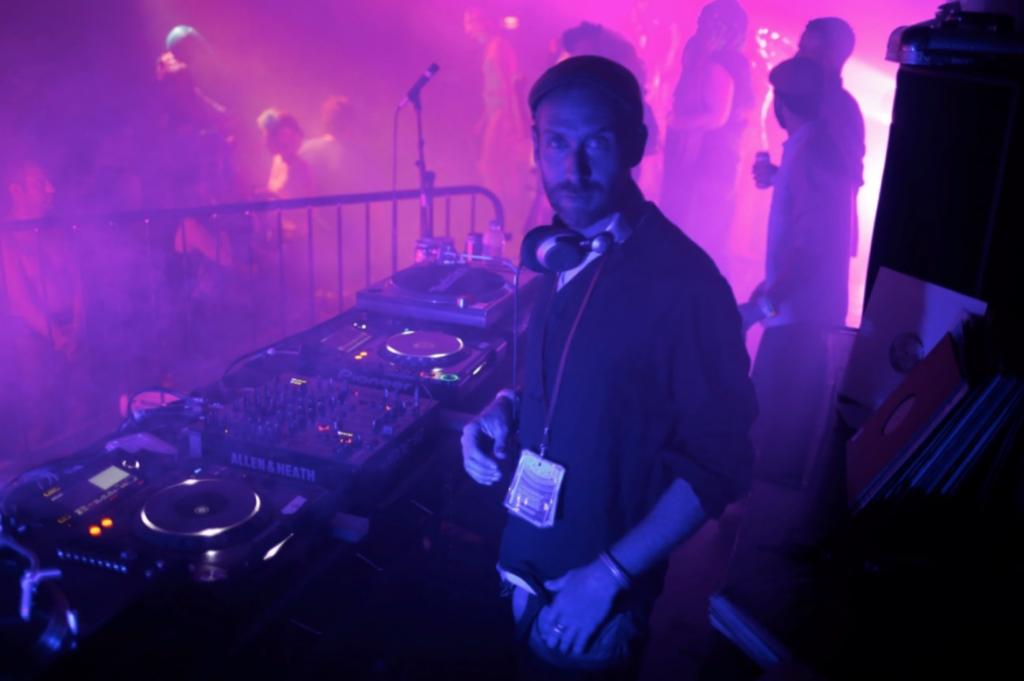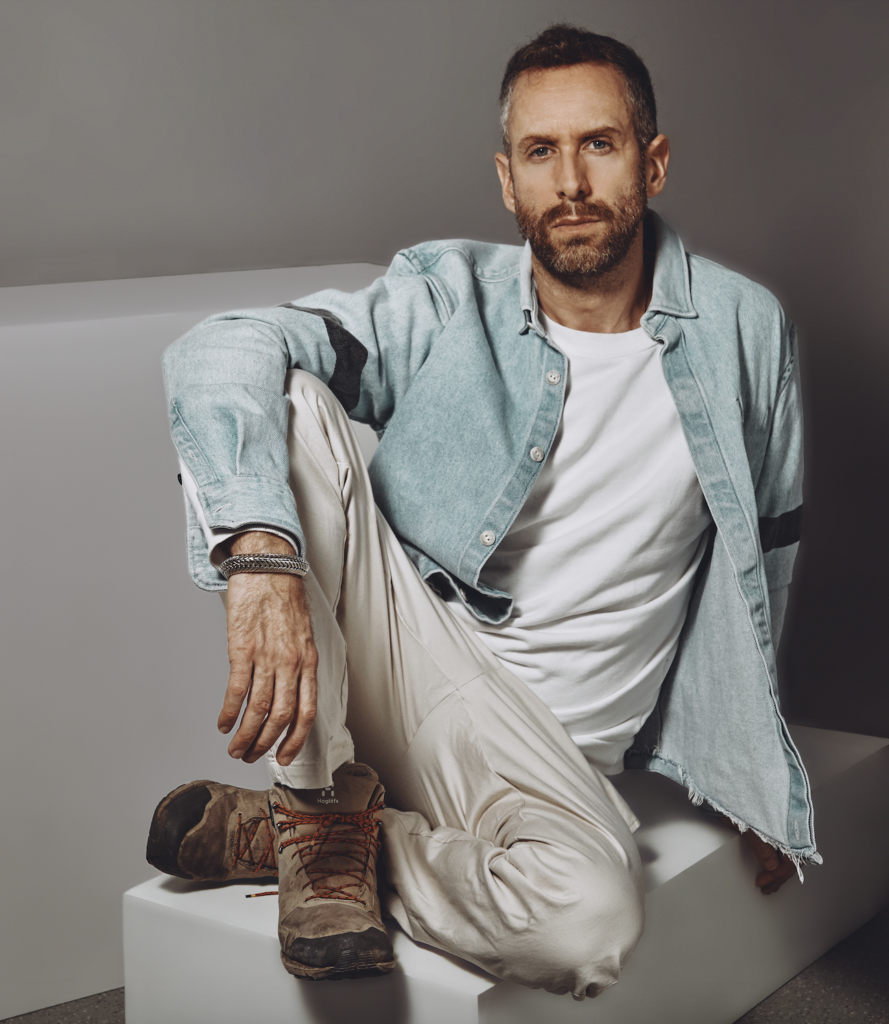Gideön on launching Homo-Centric Records: ‘People who should have been my role models were dead’
Homo-Centric is the club scene’s hottest, newest, queerest label. Anna Wall meets founder Gideön to find out more.
By Anna Wall

When Gideön founded Homo-Centric Records, his manifesto was passionate, definitive and powerful. He wanted to “re-establish the lines of queer musical tradition at the heart of house music lost to AIDS and the recent capitalist desecration of dance music.” That heritage celebrates the original LGBTQIA+ legends of the past and present, from Frankie Knuckles and Larry Levan to The Carry Nation and Honey Dijon. Central to the label is one fundamental: house music is the language of queer freedom, self-expression, love and diversity.
Growing up in south London, Gideon Berger — also known as Gideön — became obsessed with pirate radio stations and the diverse sounds that they were representing, from African and Caribbean music to house, disco and UK hardcore. In the 90s, at the age of 13, he started collecting records. A young Gideön would travel to Swag Records in Croydon to spend all his pocket money on wax, back when Fabric resident Terry Francis would be behind the counter.
Those early years were spent frequenting warehouse raves, free festivals and illegal squat parties, religiously following the rave scene that was exploding in the UK. Studying music at Brighton University, Gideön led a modest life running a sound system for the love of it and living in a Bedford coach on a travellers’ site. “I was the only queer sound system in a sea of straight white techno systems,” he recalls. After tiring of Sussex, Gideön followed the lead of friends from the illustrious Nottingham DiY Sound System and made a move to the US.
“When I grew up, so many of those people who should have been my role models were dead.”
“I wanted to go to the epicentre of culture,” he says. “I’m glad Brighton drove me to distraction because it really helped me get my shit together and move to where I wanted to be. The house music at the time that I really loved was coming from West Coast US.”
He returned to London in the 00s with a fresh energy, having absorbed house music culture in its intrinsic homelands of San Francisco, New York and Chicago.

Much like his DJ sets, the essence of Gideön’s music productions capture house music in its purest form. He creates records that resonate with the dance floors he frequents; whether that is through his sets at Adonis in London, Panorama Bar in Berlin, NYC Downlow at Glastonbury or K41 in Kyiv.
Last summer, he was invited as guest creative director for London Borough of Culture in Lewisham where he co-programmed four sound systems across four different sites — including his very own Deptford Queer Soundsystem Day — with OK Williams, Black Obsidian Soundsystem, Hannah Holland, Shay Malt and more playing. This is how Gideön believes house music should be heard: played outside for free, by people who love it, for people who love it.
It felt like the right time to start his own imprint, and in October last year he took a leap of faith and launched Homo-Centric Records.
“I’ve got a lot to say musically, and I just thought I should formalise that in a musical project which is in the shape of a label,” he says. “Anyone that’s running a small independent record label knows that it’s fucking financial suicide, it’s not something to do for big money, but it kinda grosses me out, the monetisation of music. So, I was like, ‘Fuck it, you only live once.’”
“As queer becomes mainstream… our culture is in danger of becoming homogenised and sterilised.”
Through the label, Gideön hopes to uphold the queer roots of house and disco. “As queer becomes mainstream, as LGBTQIA+ identities become fashionable, popular commodities, our culture is in danger of becoming homogenised and sterilised,” he says. “The disco and house movements, and what they meant culturally gets lost. It gets diluted and bastardised by big businesses, capitalism chews it up, sucks the blood out of it and spits it out. House and disco in my humble opinion is queer cultural expression and has a bloodline and heritage whose lineage you can trace back to the Black queer clubs of the USA.”
The label was launched with the Ritmo EP, featuring ‘Aaron Carl Lives On’, a dance-floor-friendly dedication to the late Detroit pioneer. “I spent a bit of time reaching out to the estate of Aaron Carl, trying to get permission to release the track which was made in his memory. With the plague that hit us as a community — AIDS — that decimated and wiped out a generation, we lost so much,” Gideön says solemnly. “When I grew up, so many of those people who should have been my role models were dead. The same is the case for my peers and my friends in the USA. So many of us were wiped out. There’s this massive sense of disjoint between the generations that came before us and us now. So, it’s the reverence and the remembering of where house music came from and the important queer people. Had Aaron been alive today he would probably be as big as Honey Dijon, and his label, Wallshaker, would probably be a massive fucking deal. I wanted to tip my hat to Aaron, because I feel he’s a really important character that is invisible to a lot of people.”

The follow-up EP, Storytime, features a collab with Brooklyn-born, Berlin-based Mandel Turner. They first met when Gideön was helping to run semi-illegal parties in Berlin called Absolution. “I was a big fan of his. He’s got an amazing history, and a legendary voice in house music,” he says.
Set to come out in May, the third release, ‘Brighter Day’, is a deep, soulful and captivating love letter to Cajmere’s ’92 classic and is already igniting dance floors. As well as masterminding the production, Gideön wrote the lyrics later recorded by Tasty Lopez and Tobirus Mozelle. “Me and Prosumer did All Night at Pickle Factory recently, and I road-tested ‘Brighter Day’ for the first time, and I just knew that it would be a success from playing it once. The response was amazing,” he smiles. To celebrate ‘Brighter Day’, an in-store label takeover is planned for May at Phonica Records.
“Nothing makes me happier than making and playing music.”
The fourth release will reveal yet another side to Gideön — displayed in the harder, darker, faster 140 BPM rhythms of ‘Hector’s Revenge’. “Some of the best times in my life have been downstairs at Berghain in that mosh pit of industrial techno,” he adds.
It’s not hard to see that Gideön lives and breathes his words: DJ, producer, curator, political activist, he’s also co-founder of Block9 alongside Stephen Gallagher, the creators/curators of NYC Downlow, Genosys, Maceo’s, and IICON at Glastonbury. It’s all juggled alongside his day job as a creative director. “I’m a work-a-holic,” he admits. “But nothing makes me happier than making and playing music.”
This is the spirit that embodies all the projects Gideön touches, and Homo-Centric Records is no exception: a place for togetherness to celebrate the roots of house music, and a home for queer musical expression.
